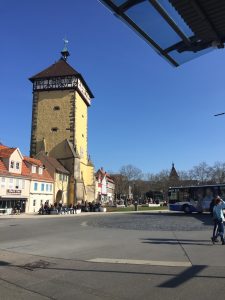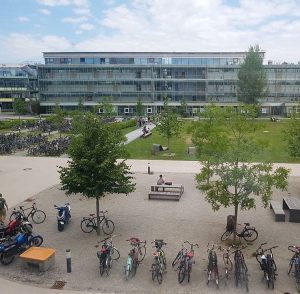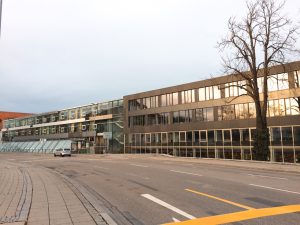Carike and Peter are enrolled for an undergraduate mechanical engineering degree at Stellenbosch University. (Currently the Gap Year programme is only limited to students from the Mechanical Engineering Department. We also only send students to countries that are part of the Washington Accord: https://www.washingtonaccord.org/washington-accord/signatories/ )
In 2017, Carike and Peter decided to undertake an Engineering Gap Year in 2018, which includes the following two components: A semester exchange at a partner university followed by an internship at a German company. The semester exchange entails taking courses at a partner university in their field of study. This is a great opportunity for students to be exposed to a new academic environment and to see how engineering courses in their field of study is presented at partner universities. The internship placements are mostly organized by the students themselves, but with some support from the partner universities. The internships can be paid or non-paid and is a great way to acquire work experience and strengthen a student’s employability. (We also currently have three other students taking part in a semester exchange at North Carolina State University. Their exchange is starting in August and will only be for one semester.)
We have asked Carike and Peter to provide some feedback, since they are now midway through their international study experience. Here are some of their feedback (we have edited the responses).
Carike at Reutlingen University:
I have been having the time of my life in Germany! My experience at Reutlingen Hochschule has been wonderful. Reutlingen is very geared towards international students, since about 20% of their students are non-German. They not only have exchange students, but also international students doing their whole undergraduate degree there. On my dorm floor of eighteen people, only three students are German citizens. I included a photo of an international dinner evening we had on the floor; it was quite a learning experience!
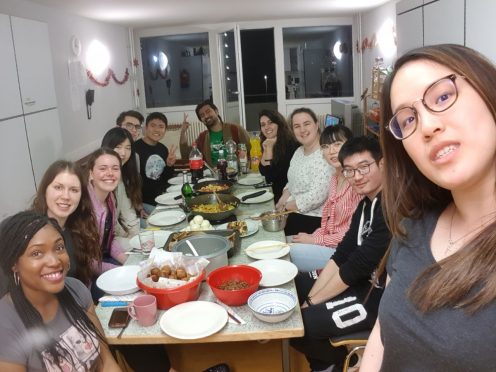
As for the university itself, I really enjoyed most of my classes. In addition to my engineering courses, I also took two German language courses, which I highly recommend. Having even the most basic of German skills can get you far in your everyday life, since the average German speaks very little English.
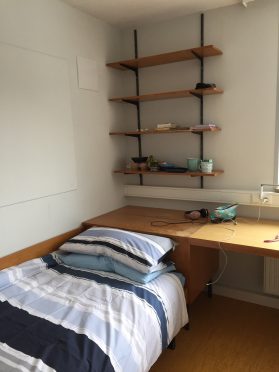
The classes at Reutlingen are much smaller than in Stellenbosch, which was something to get used to, but a positive experience. My classes were composed of both German and international students, and in some of them, I was the only international student. Reutlingen’s lecturers are required to spend a certain amount of time in industry before being allowed to teach there, and in my experience this really shows in their teaching style. It is a lot more practical- and industry-orientated than it is academic. Another thing that was strange was that they have almost no intermediate evaluation – in two of my classes, we had a practical that was pass-fail, and that was it except for the final exam. Two others had only the final exam and the fifth one only a design project and no exam. This is not a criticism; it is just something I found different. It left me with a lot of free time during the semester, which was great, because the university’s international department organised many excursions and activities.
I will be doing my internship at a company called Bielomatik, an engineering consulting company that provides solutions for plastic welding and lubrication technology. The internship is paid, and structured in such a way that I receive relevant training before every project I work on. It seems I will be starting work on a project in the lubrication department, but throughout the five months I will be working for them, I will work on various projects. My internship will be just shy of five months, and the timing was very flexible – almost completely up to me, as the company has no time requirements, they rely on the university requirements for that. They even let me start a week later than originally planned when I asked, because I want to attend a friend’s wedding in South Africa before going back. I managed to get my internship qualified as a “Pflichtpraktikum” (mandatory internship) as opposed to a “Freiwilliges Praktikum” (voluntary internship), which made it easier to get one. Companies are reluctant to take in voluntary interns for more than three months, since German law states that they then have to pay the intern minimum wage. This is not the case with a mandatory internship.
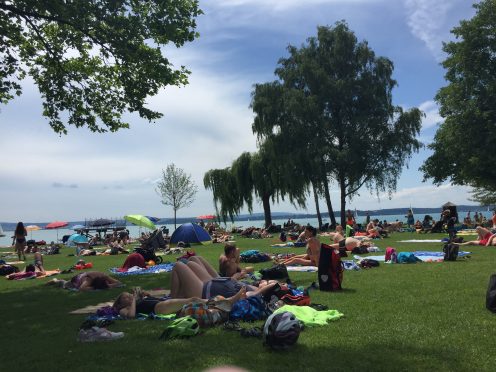
Reutlingen offers an elective course called “Application Training for International Students”. I highly recommend signing up for something like this before starting internship applications, since the way the German CV is structured is quite different to the South African way. The fact that I speak fluent German also definitely helped me in applying for an internship – I did the whole process in German, from my Cover Letter and CV to the interview. You can do it without German language skills, but the options become somewhat more limited. Reutlingen is a technical university, so all engineering students have to do a practical semester. As such, they had an extensive career fair, where I got all the information I needed to apply for internships. I would recommend attending a fair like this when looking for companies – Bielomatik wasn’t even on my radar before attending. The options were plentiful – I decided on Bielomatik in the end because it allowed me to continue living in the student dorm (which is by far the cheapest option!) and I liked the company philosophy.
I highly recommend the German Gap Year as an opportunity. I have learned a lot about myself and the direction I want my career to go into in the last semester, and look forward to learning even more during my internship. The year this added to my studies is already worth it. On a non-academic note, I have also made lifelong friends with people from all over the world. It’s also really easy and relatively cheap to travel to other European countries if you’re based in Germany, and the chance to visit some of the places I’ve visited is priceless.
Peter at TH Ingolstadt:
So far, my exchange experience has been incredible, I have developed a much stronger passion and connection to my industry and it has provided me with clarity with respect to the direction I want my career to head towards.
The experience at my host university has been really amazing. My host university, Technische Hochschule Ingolstadt (THI), is very accommodating towards exchange students and is a great place to come and learn about Engineering in a more practical sense. Students have the chance to take as many classes as they please and have a period of 2 weeks to attend which courses they are interested in before registering for specific courses. The exchange student classes are small so you are able to develop good relationships with your classmates and lecturers.
I am doing my Internship at AIRBUS in the Space and Defense department. The internship is paid. There are two types of internships that companies offer namely; a voluntary internship whereby you are only allowed to work for 3 months and a mandatory internship which you can work as long as your University requires you to work. Your University declares the mandatory internship mandatory and this must be proven because the salaries for mandatory and voluntary are different. The length of the internship and flexibility varies and can be negotiated with your company.
Audi Booth at THI
The tips that I have for applying for internships. Make sure that you are registered on a webpage which informs you about internships that are currently available in your area, I personally made use of the website Glassdoor. If you are interested in doing an internship at a specific company, create an account on their webpage and they will send you regular updates on available internship positions. Because I am studying at a Technische Hochschule, all students are required to complete an internship as part of their studies, therefore the University hosts job fair events whereby hundreds of companies attend and it is a great place to find an internship and get exposure to different companies. The Universities also have workshops for international students whereby they inform you on how to adapt your CV for the German workforce and how to conduct yourself correctly in order to be successful in the workforce. I would advise making use of these workshops. Another tip is to make sure that if you claim to have a specific skill or skillset on your CV that you are actually able to do it, because if you say that you are able to do something, people will assume that you can do it. Do not exaggerate your capabilities just to find an internship because you will run into trouble. If you do not speak German, it is relatively difficult to find an internship, but it can definitely be done.
The way forward:
We are hoping to built out this programme more extensively for the future. We have already increased the number of partner universities for 2019. It is important to note that we can’t guarantee an internship placement. If a student is not successful in getting an internship placement, they can decide to stay for an additional semester at the partner university. There is funding is available, but it does not cover all expenses. Also, with the German Gap Year programme students are extending their degree programme with a year.



